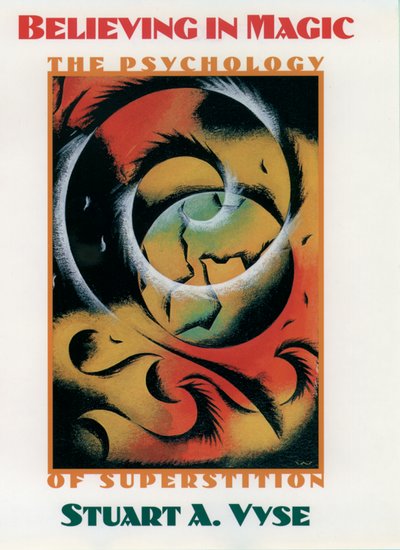By Stuart Vyse
“Beware the Ides of March,” warns the soothsayer in Act 1, scene 2 of Shakespeare’s Julius Caesar, and by the end of the play, the Roman dictator, having ignored the soothsayer’s prophecy, is dead at the hands of a conspiracy of foes. The 15th of March was made famous by this single historical event, described in Plutarch’s history of Caesar’s life and made part of our contemporary Western vocabulary by Shakespeare’s tragedy and, more recently, by last summer’s political drama starring Ryan Gosling and George Clooney.
The messages seem clear. No matter how powerful you are, destiny will have her due, and you ignore the soothsayer at your peril. But our contemporary era is remarkably bereft of reliable soothsayers. A true gift of prophecy would be a wonderful gift indeed. Equivalent to the superhero powers of invisibility and flight. A modern day seer could pick winning stocks and lottery numbers, anticipate successful and unsuccessful romantic pairings, and dress appropriately for the weather every single day.
There is no shortage of people vying for the job of prophet. American preacher and radio personality Harold Camping gained wide publicity last year by predicting the arrival of judgment day on May 21, 2011. When this appointment did not pan out Camping came up with a revised end of the world date of October 21, 2011. I was invited to a “Rapture party” in honor of the event, and, thanks in part to Camping’s second miscalculation of 2011 (he also predicted the end of the world in 1988 and 1994), I managed to get home safely. This year, we will endure the 2012 Mayan calendar apocalyptic legend, which has been aggressively promoted by movie and television producers hoping to cash in on a manufactured hysteria that will only intensify as the the latest dooms day date of December 21, 2012 approaches.
The motivation for our interest in predicting the future — particularly with respect to dire events — is quite clear. Many of life’s most important episodes — the moment and manner of our death, for example — are utterly unpredictable. Even when we cannot do anything about these calamitous happenings, we would often like to know if and when they will occur. Laboratory rats will learn to press a lever to be warned about when an electric shock is coming, even when the shock cannot be avoided.
If, on the other hand, armed with a glimpse of the future, we were in a position to avoid the disasters that have been assigned to us, the gift of prophetic knowledge would be invaluable. We would have the power to change our destinies and make life immeasurably happier than it was originally designed to be.
Unfortunately, the future hides its secrets jealously. Some years ago, Alan M. Tuerkheimer and I conducted a study of predictions made by psychics and by experts in various fields. We found that neither experts nor psychics were very good at predicting the future and that psychics were significantly worse at their chosen profession than the experts.
Not only should despotic dictators beware, but ordinary consumers of the services of self-proclaimed soothsayers — be they psychics, financial analysts, or political prognosticators — should also take heed. The future’s not ours to see. Que sera sera.
Stuart Vyse is Joanne Toor Cummings ’50 Professor of Psychology at Connecticut College and author of Believing in Magic: The Psychology of Superstition and Going Broke: Why Americans Can’t Hold On To Their Money. His Twitter feed is @stuartvyse and he blogs at Stuart Vyse. He is grateful to Eric Adler for his assistance with this blog post.
Subscribe to the OUPblog via email or RSS.
Subscribe to only psychology articles on the OUPblog via email or RSS.
View more about this book on the ![]()
![]()



Recent Comments
There are currently no comments.